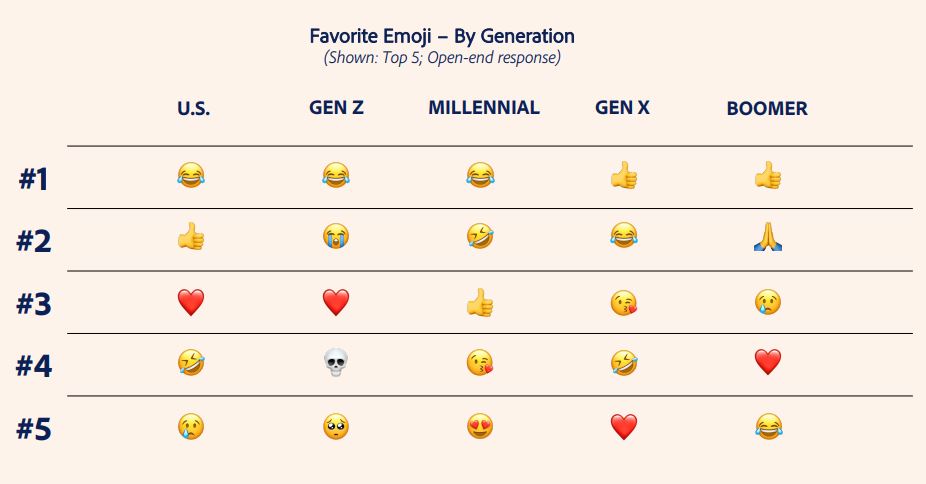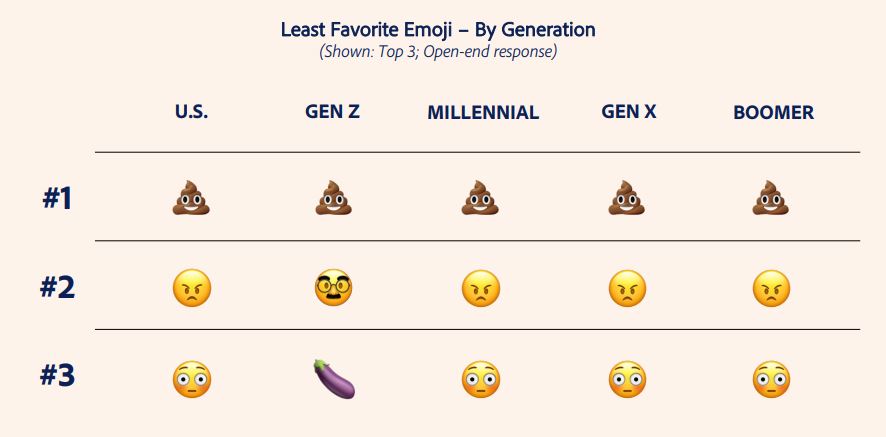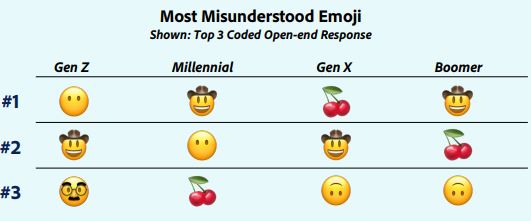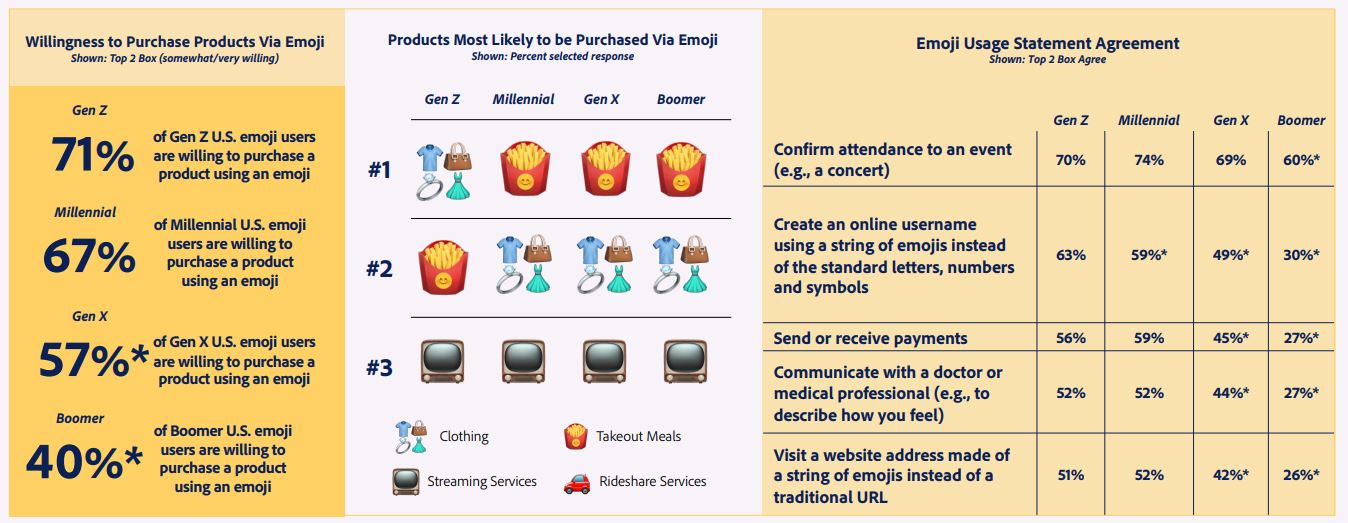Comments on Adobe’s 2022 Emoji Usage Trends Survey
[The Internet you know and love is on life support after an awful NetChoice v. Paxton Fifth Circuit opinion and the enactment of two California laws, AB 2273 and AB 587. I’ve written so much about those bills that I don’t have anything new to add today, and a blog post on NetChoice v. Paxton is coming soon. For today, I’m going to stay in my alternative reality where we still have the ability to talk to each other online in the future. The realism of my alternative universe will depend on what the courts ultimately say.]
Adobe published a survey, the “Future of Creativity: 2022 U.S. Emoji Trend Report.” The survey focuses on “frequent emoji users across the United State,” so it does not represent all Internet users or the population generally. Still, let’s see what power emoji users had to say.
- “The majority of U.S. emoji users agree that emoji make it easier for them to express themselves (91%).”
- “60% of U.S. emoji users agree that using emoji in their communications has improved their mental health.”
- “Half of U.S. emoji users are more likely to respond to a message if it contains an emoji (50%).”
- “73% of U.S. emoji users think people who use emoji are friendlier, funnier and cooler than those who don’t.”
- “69% of Gen Z and Millennials are more comfortable expressing emotions though emoji than through text-only conversations.”
- “71% of U.S. emoji users agree that emoji are an important communication tool for creating unity, respect and understanding of one another.”
- “Half of U.S. emoji users use emoji differently than their intended meaning (50%). Gen Z emoji users are significantly more likely to agree they use emoji differently than their intended meanings (74% vs. 65% Millennial, 48% Gen X, 24% Boomer).” [I wonder if the wording of this question was confusing. I’m sure most people have used emojis to stand for something different. That’s just the ordinary development and usage of slang. Either way, it’s a reminder that emojis don’t have canonical meanings.]
- “Nearly half of U.S. emoji users have sent an emoji that was misinterpreted or taken out of context (47%).” [Can you see the lawyers’ eyes getting bigger? 🤣]
- “2 out of 5 Gen Z’ers (38%) would not pursue a serious or long-term relationship with someone who did not use emoji.” [Emoji usage is the new “Hot or Not?”]
- “1 in 3 Gen Z’ers (32%) has ended a relationship with someone using an emoji.” [Steve Harvey stunned GIF.]
Is there any real doubt that emojis serve important pro-social functions?
I’ll separately break out the emoji usage in the workplace, because this comes up often in legal circles:
- “71% of U.S. emoji users say they use emoji at work…78% of Gen Z use emoji at work”
- “The majority of U.S. emoji users like when people use emoji at work (68%) and feel they positively impact likability (69%) and credibility (59%)….Younger generations are significantly more likely to agree that emoji use increases credibility (68% Gen Z’ers, 67% Millennials vs. 52% Gen X’ers, 46% Boomers).”
- “63% of U.S. emoji users feel more connected to their team and company when co-workers use emoji to communicate.”
- “Using emoji at work helps U.S. emoji users quickly share ideas (79%), makes team decision-making more efficient
(62%) and reduces the need for meetings and calls (47%).” [I find it hard to believe that emojis dramatically reduce the need for meeting and calls, but if true, I would expect all of us would celebrate that.] - “U.S. emoji users agree that emoji usage at work boosts their creativity (58%).”
- “More than half of U.S. emoji users feel more receptive to new tasks when emoji are used in the ask (55%).” [What an enormously helpful hack for delegating work! 🙏]
- “7 in 10 U.S. emoji users agree that using emoji at work helps build better relationships with new hires (68%). Both Gen Z’ers (69%) and Millennials (70%) agree emoji help them feel connected to colleagues they have yet to meet in person.”
While this survey population is not representative of the general population, these statistics demonstrate the implicit bias in anyone who argues against using emojis in business communications. THEY may not value emojis, but other people value them greatly. Thus, a ban basically cuts off a key means of expression for GenZ (and others), so it sends the unmistakable signal that the younger workers aren’t valued and perhaps will be punished for the ways young people talk with each other. OK, boomer.
Some other interesting stuff from the survey:
[I’m a little surprised by this, frankly. A well-timed/placed poop emoji is awesome.]
[I have no idea where this is coming from, but it suggests that the law of contracts may get emojified in a big way!]






